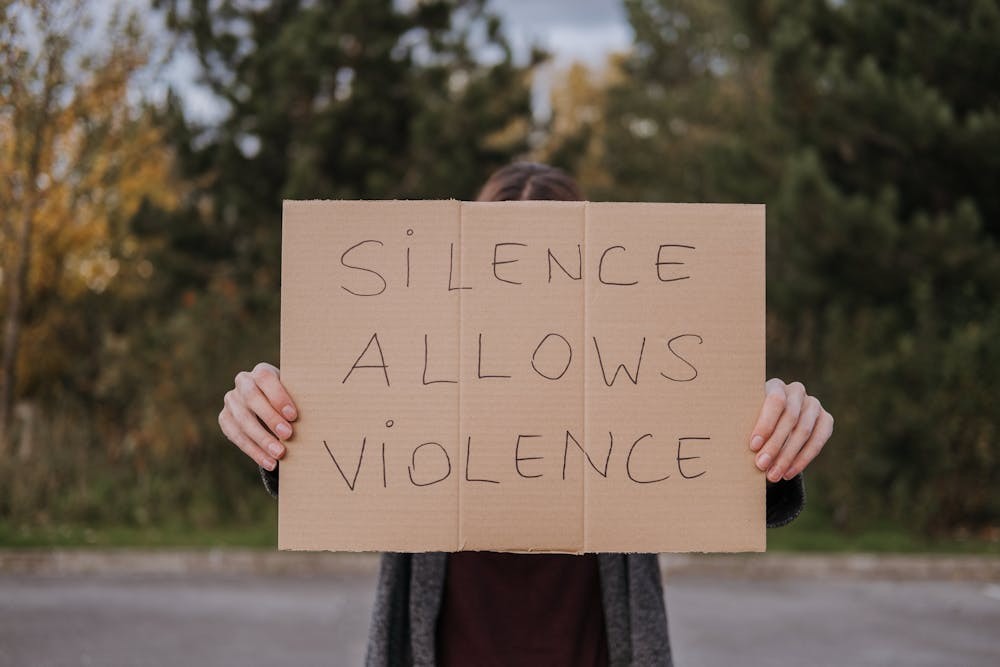Note: This post is part of the Voices for Education Justice series—a practical guide for anyone ready to speak out about harm in schools. Whether you’re building a blog, drafting your first post, or finding the courage to hit publish, this series is here to remind you: your words carry weight, your story matters, and silence is not the price of survival.
If you’ve spent any length of time trapped inside the airless cadence of IEP meetings, or drafting carefully modulated emails that hide your trembling hands, or revising your own memories until they sound acceptable to someone with power but without insight—then you already know what it means to reframe yourself for institutional digestion.
You have learned, over time, to soften the edges of your language, to measure your breath against another person’s threshold for discomfort, to recite your child’s pain like a gentle plea, because somewhere along the way you absorbed the belief that your child’s survival depended on your composure.
This type of self censure is a form of violence we enact on ourselves, hoping to protect our children, and while that desire is noble and legitimate, the harm we experiennce through this sacrifice is real. Human bodies were not meant to endure this kind of double indemnity for sustained periods of time.
Your blog is not that meeting room. It does not need to impress anyone. It is not a performance of diplomacy or a last chance to make them hear you. It is a record, a sanctuary, a flare. It is a space where your sentences do not need to fear their own volume. It is a space where you write like the people who matter already believe you.
This is a follow-up to this blog:
-
Structuring your site when your thoughts feel chaotic
A guide to emotional architecture: building a site that honours your spiralling thoughts and empowers your audience. You don’t need to organise your pain into neat folders to begin.
You are writing for survivors, not skeptics
It is hard to write outside the logic of defence. So many of us have been trained, even unconsciously, to think that storytelling must persuade someone who disbelieves us—that it must be calm enough, balanced enough, apologetic enough to keep us in the room. But when you write on your own terms, when you build a body of work that speaks from lived experience rather than institutional appeasement, you begin to notice something else: the readers who need you do not need to be convinced. They need a witness, a ladder out of what feels like an unspeakable private shame.
You are writing for someone who is still down a trapdoor, or stuck in a spiderweb, or circling the drain. Someone who has just left the meeting where the word fit was used like a surgical tool. Someone who keeps thinking they must be missing something because everyone else seems so composed. Someone who types “school exclusion” at midnight and finds nothing except a government brochure that names the policy but not the pain.
That person does not need your credentials. They need to hear their own breath in your sentences.
Let emotion do its work
The institutional world frames emotion as a liability—something that distorts, undermines, or discredits. But here, where you are building testimony not bureaucracy, emotion is the frame. Grief is what makes the memory hold. Rage is what makes the harm visible. Shame, when named, dissolves.
Let your sentences breathe the way you do when you are safe. Let them crack open when something hard is remembered. Let them curl back in when it hurts too much. Let your writing carry the emotional truths that the meeting agenda was designed to prevent.
You do not owe balance to systems that caused harm
There is no ledger that requires you to explain the viewpoint of those who harmed you before you are allowed to describe what they did; you are not a policy document, and your writing is not a courtroom where fairness means folding your pain into the language of their good intentions.
You are someone who has lived through structural harm, whose child has been harmed by structures disguised as support, whose grief has been diluted too many times for the sake of preserving someone else’s comfort. You have already given the benefit of the doubt—generously, repeatedly, often against your better judgment—and you have already stayed calm while being erased, already thanked them while being dismissed, already rewritten your words to sound more reasonable while the reason for your writing was a child in pain.
Balance, in these spaces, often functions as a shield for those who benefit from your restraint. But truth, when given the space to breathe—when allowed to stretch out, uncoiled and uncorrected—carries its own equilibrium. You do not need to add anything to make it valid.
The right people will recognise you
Your post might feel too raw, too particular, too loud, too much rage. I encourage that!
You might worry that it won’t land, that it’s not ready, that it says too much.
But somewhere—somewhere far from your own geography and close to your emotional terrain—someone is holding their breath, trying to name the thing that’s eating them alive. And they will find your words. They will feel the click of recognition. They will read it to their partner, underline it with their finger, or whisper it to themselves like prayer.
And in that moment, you will become part of something larger than you can see. A chorus of truth-tellers whose stories echo across time zones and diagnoses, across the lines of grade levels and designation letters and what was written in the file.
You don’t need to write for everyone. You only need to be findable by the ones who already believe you.








